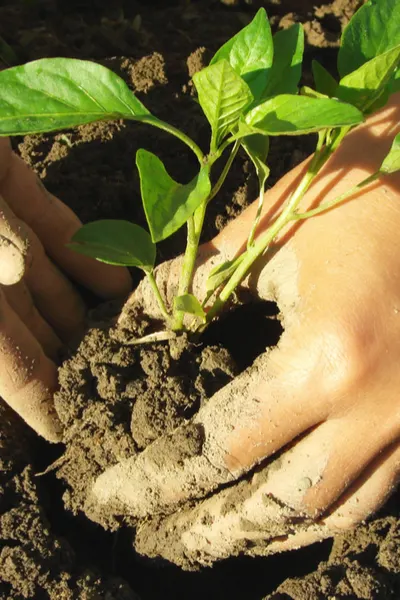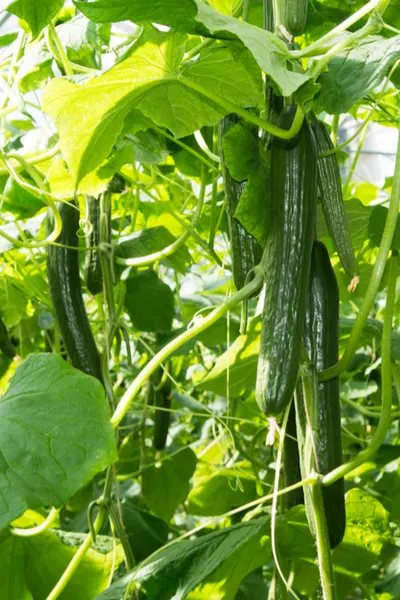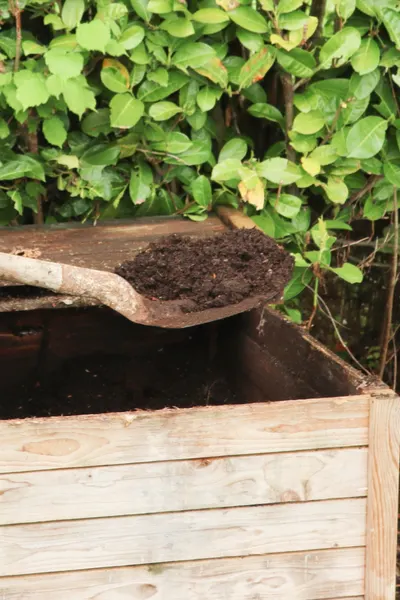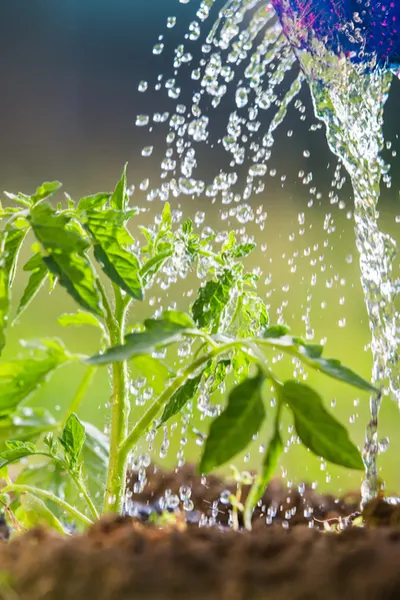When and how you fertilize vegetable plants can make a huge difference in both the health of your plants, and the size of the harvest.
Vegetable plants need a steady supply of nutrients to grow and produce.
Whether grown in a traditional backyard garden setting, or in raised beds or rows, plants can quickly devour the nutrients available in the soil. And even more so when grown in containers.

Especially when it comes to heavy feeding vegetable crops like tomatoes, cucumbers, peppers and corn.
Crops such as these benefit greatly from a dose of fertilizer now and then to help boost health and vitality.
But the key to total success lies in knowing when, how much, and how often to apply that fertilizer.
How To Fertilize Vegetable Plants
When To Fertilize
Timing is everything when it comes to fertilizing vegetables.
Young plants, especially transplants like tomatoes and peppers, have a hard time adjusting to the shock of outdoor life.
Applying fertilizer too early can easily burn the tender young roots and foliage of transplants or seedlings.

But fertilizing too late can be an issue as well. Plants that receive additional nutrients too late in the growing season are unable to use the resources to produce blooms.
Instead, they use the excess energy into growing more foliage, and not more vegetables.
The Right Time To Boost Plants
A good rule of thumb is to hold off fertilizing seedling and transplants until they have had at least two weeks to adjust to the soil and weather conditions.
Then, once plants have settled in, apply a light dosage of fertilizer every few weeks. A more frequent but lighter application is a much better choice than applying just a few high doses.

Why? It allows plants to have a slow and steady diet of nutrients. This in turn leads to better root growth, more blooms, and increased fruit set.
Usually, 4 applications over the course of 8 weeks is more than enough to work wonders for boosting crops.
By mid-summer, as the blooms and fruit set begin to appear in full force, it’s time to discontinue fertilizing and simply begin to harvest!
What Are The Best Fertilizers To Use For Vegetable Gardens?
There are a lot of choices when it comes to fertilizing vegetable plants.
Many prefer to take an organic route, especially since they will be consuming their harvest. See : 4 Natural Fertilizers To Power Your Garden
Liquid Applications
One of the best ways to fertilize vegetable plants in the garden or in containers is with a liquid application of fertilizer.

Liquid fertilizers work quickly to deliver nutrients into the roots and foliage of plants.
You can make an incredible, all-purpose liquid fertilizer right at home by steeping compost or worm castings in water for a few days. (See : How To Make Compost Tea)
The resulting liquid can then be used to water plants every few weeks for a steady dose of powerful nutrients.
There are also many organic all-purpose liquid fertilizers available commercially. Nearly all can easily be mixed with water to apply. Product Link : Jobes All Purpose Organic Plant Food Mix
Dry Fertilizing Options
Another option for fertilizing plants is to mulch plants with a fresh supply of compost every few weeks.

The fresh supply of compost leaches nutrients into the soil every time it rains or plants or watered.
Worm castings can be used in much the same fashion, by working in a quarter cup of castings around the base of each plant every few weeks.
No matter how you choose to fertilize, the key is a slow and steady approach!

This Is My Garden is a website dedicated to spreading the love and knowledge of gardening around the world. We publish two new garden articles each week. This article may contain affiliate links.
